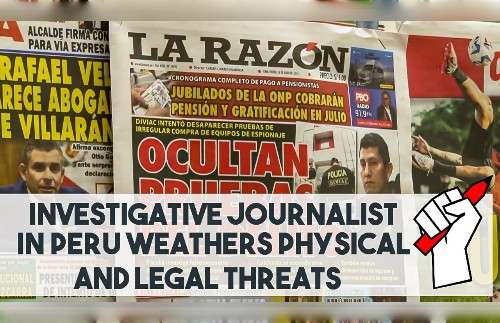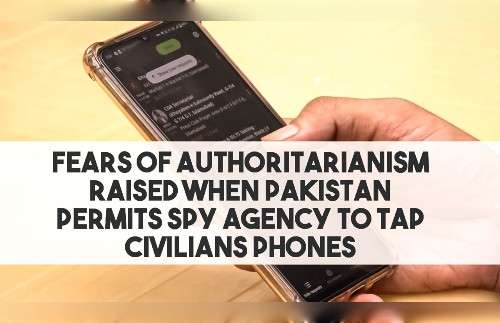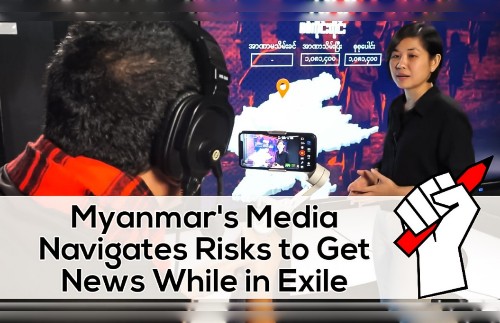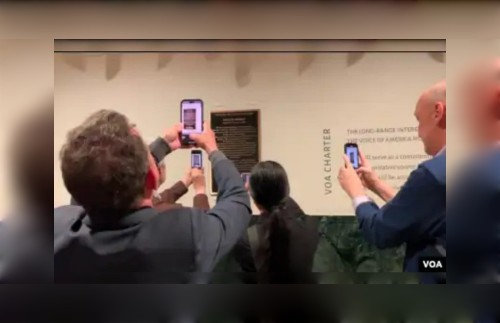Lawyers for two Reuters reporters serving seven-year jail terms for possessing classified government documents filed an appeal on Friday with the Supreme Court in Naypyidaw to have the convictions overturned, while an international rights group issued a damning report on government use of repressive laws against journalists and critics.

Khin Maung Zaw, one of the two attorneys who submitted the appeal, said the court will make a decision on whether to accept the case within days.
The court procedure requires the defense team to file arguments once the court accepts the case, he said.
“We’re hopeful for positive results because this is the Supreme Court, and I think it will thoroughly review the case,” he said.
Reporters Wa Lone and Kyaw Soe Oo were arrested in December 2017 while pursuing a story about the massacre of 10 Rohingya Muslims in Inn Din Village in northern Rakhine State during a brutal military crackdown.
A Yangon court sentenced them to seven years in jail in September 2018 for violations of the Official Secrets Act.
The Yangon Regional High Court in January rejected an appeal filed by their attorneys, saying the defense team had failed to provide sufficient evidence of their innocence.
The case has drawn widespread criticism from press freedom and human rights groups, which contend that the pair was framed by police officials and convicted on bogus charges.
Police witness freed
Meanwhile, a former police officer who testified as a witness for the prosecution in the case and told the court that the two reporters had been set up, was released from jail on Friday after serving a one-year-sentence for violating police discipline.
Police Captain Moe Yan Naing was arrested in December 2017 after being identified as one of two policemen involved in the case who were detained on charges of violating the British colonial-era Official Secrets Act and the Police Disciplinary Act.
During the Reuters reporters’ pretrial hearing, he told the court that Police Chief Brigadier General Tin Ko Ko had ordered him to entrap the journalists by giving them documents related to the crackdown on the Rohingya in Rakhine state.
Wa Lone and Kyaw Soe Oo had been arrested following a dinner meeting with officers who handed them the papers.
The whistleblower was sentenced to a year in Yangon’s Insein Prison under the Police Discipline Act for handing classified information to the reporters, and authorities ordered his wife and three children to move out of a police housing complex.
After his release from jail, Moe Yan Naing thanked all his supporters and called for legal reform.
“I have never violated any police discipline throughout my police career,” he said. “But the Police Disciplinary Law that I was accused of violating is not up to a required standard, and it causes a lot of suffering for members of the police force.”
“In my view, this kind of law must definitely be amended as the nation is headed towards a democratic system,” he said.
Ruling party blasts HRW report

Human Rights Watch (HRW), one of the international rights groups that has called for the release of the Reuters journalists, issued a report on Friday indicating that assaults on freedom of expression and assembly in Myanmar have increased significantly under the civilian National League for Democracy (NLD) government which came to power in 2016.
Reporters Wa Lone and Kyaw Soe Oo were arrested in December 2017 while pursuing a story about the massacre of 10 Rohingya Muslims in Inn Din Village in northern Rakhine State during a brutal military crackdown
The decline in freedom of the press during the NLD’s term has been “particularly striking” with authorities arresting journalists under various laws, including the Telecommunications Act, the Unlawful Associations Act, and the Official Secrets Act, HRW said.
At least 43 journalists had been arrested under the current government as of Sept. 30, 2018, according to Athan, a domestic organization that advocates freedom of expression in Myanmar.
“[State Counselor] Aung San Suu Kyi and the National League for Democracy promised a new Myanmar, but the government still prosecutes peaceful speech and protests and has failed to revise old oppressive laws,” said Linda Lakhdir, HRW’s Asia legal advisor and author of the report, in a statement issued Thursday.
NLD spokesman Myo Myunt blasted HRW’s report.
“This is how just they see [our NLD government], he said.
“We disagree on their point that media freedom is getting worse,” he said. “Today is an age when there is more freedom for people so that they don’t need to be afraid of government officials and members of parliament. And so, they can now criticize them more freely.”
But because people exercise criticisms of officials without restraint, lawmakers have brought lawsuits against them, as is their right, Myo Myunt said.
“We have told our MPs to talk with people as much as possible instead of filing lawsuits,” he said.
Myint Kyaw, joint secretary of Myanmar Press Council, disagreed.
“In my opinion, the judicial system hasn’t granted freedom to media people during the last two and a half years, and judges have used strong charges against them,” he said.
Officials are charging journalists under Section 505(b) under Myanmar’s Penal Code and Section 66(d) of the Telecommunications Act, though they should be using the country’s Media Law to pursue complaints, especially for journalists who write about issues related to the government or the military, Myint Kyaw said.
Section 505(b) of the Penal Code criminalizes the circulation of statements and reports with the intent to cause fear or alarm in the public. Violators face a maximum penalty of two years in prison.
Section 66(d) of the Telecommunications Act prohibits use of the telecom network to defame people and carries a jail sentence of up to three years and a fine.
In the past year, there have been 53 cases filed under Article 66(d) and 31 cases filed under Section 505, Myint Kyaw said.
[Reported by Htet Arkar and Thant Oo for RFA’s Myanmar Service. Translated by Nandar Chann and Khet Mar. Written in English by Roseanne Gerin.]
Copyright © 1998-2016, RFA. Used with the permission of Radio Free Asia, 2025 M St. NW, Suite 300, Washington DC 20036
















